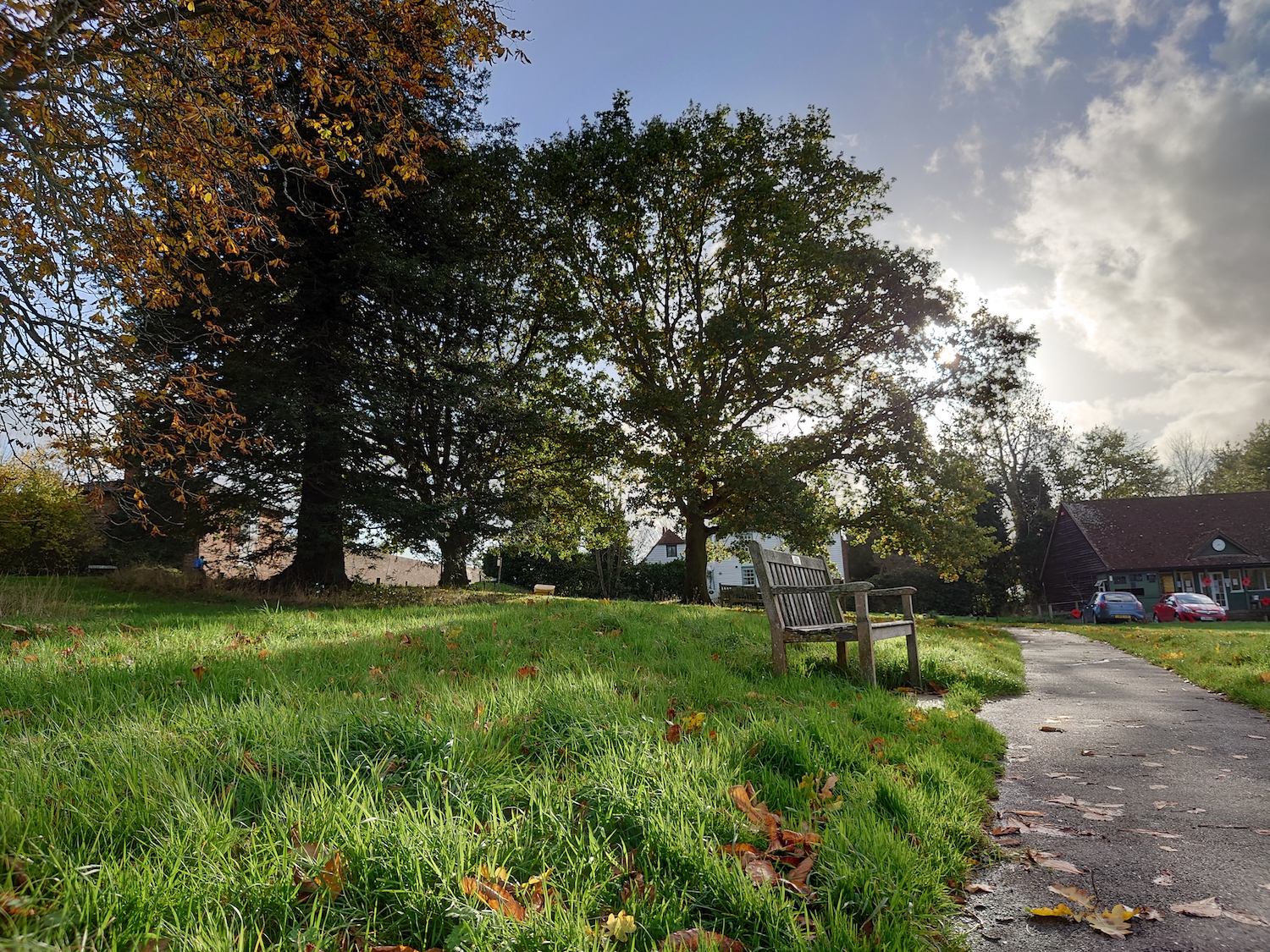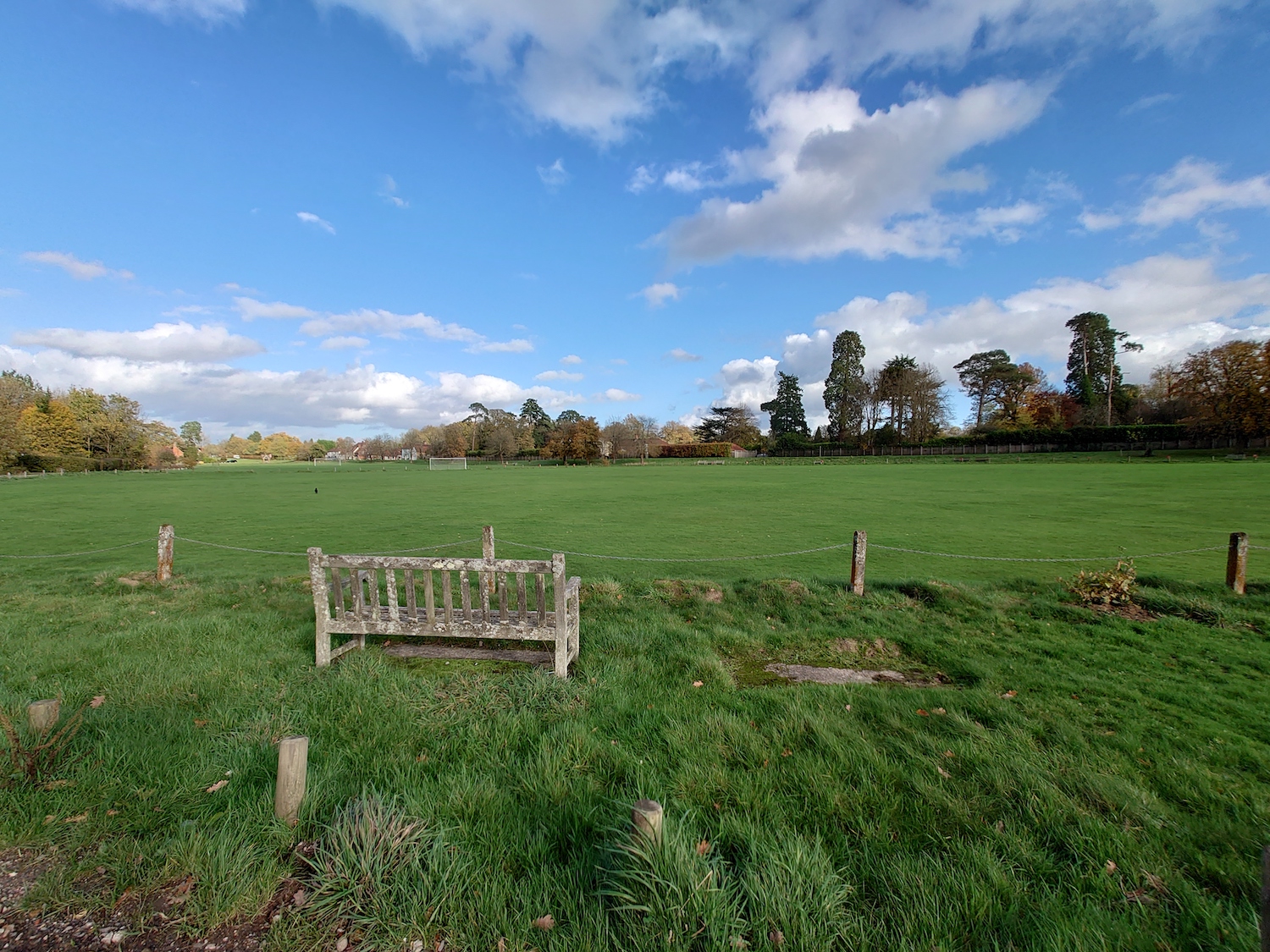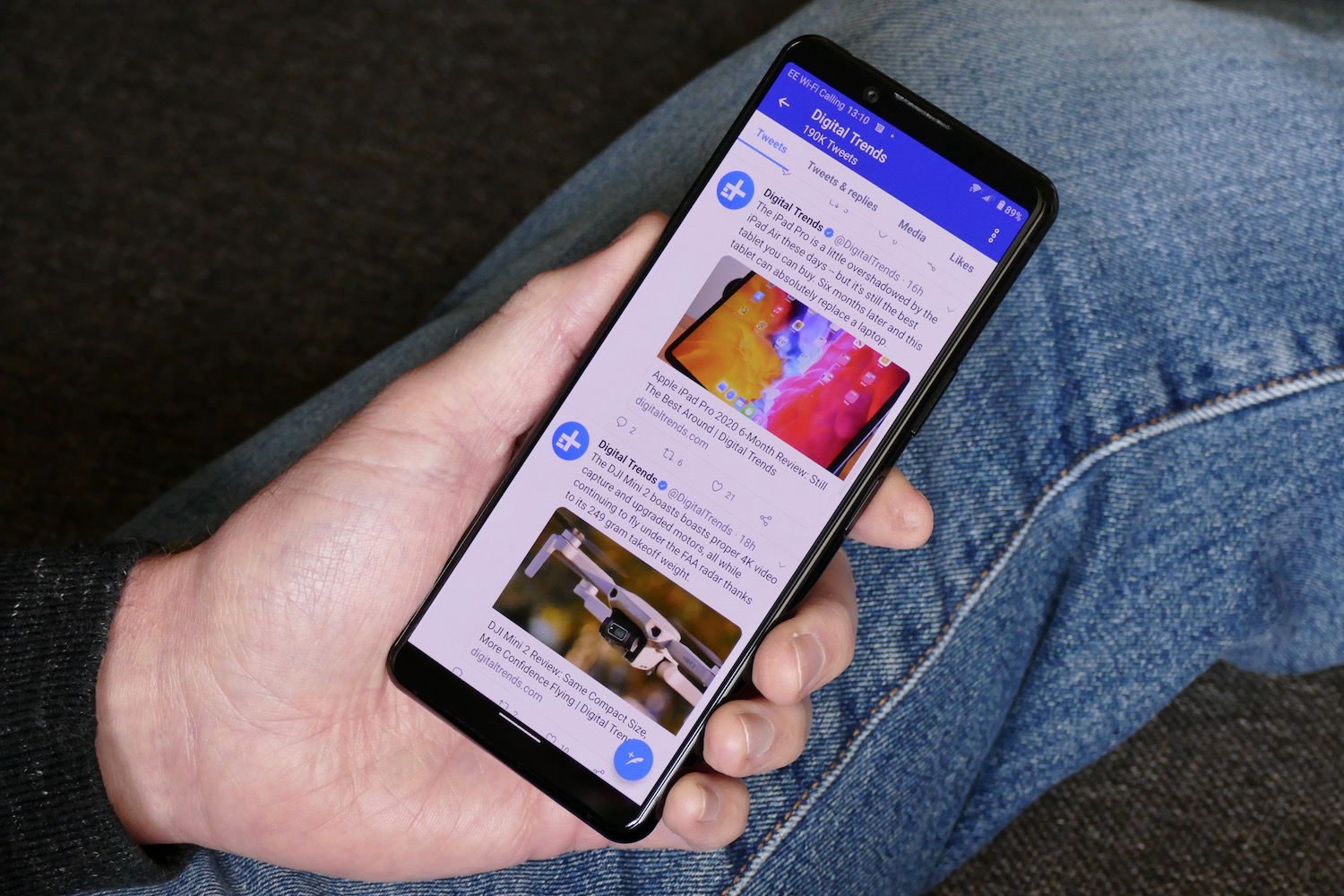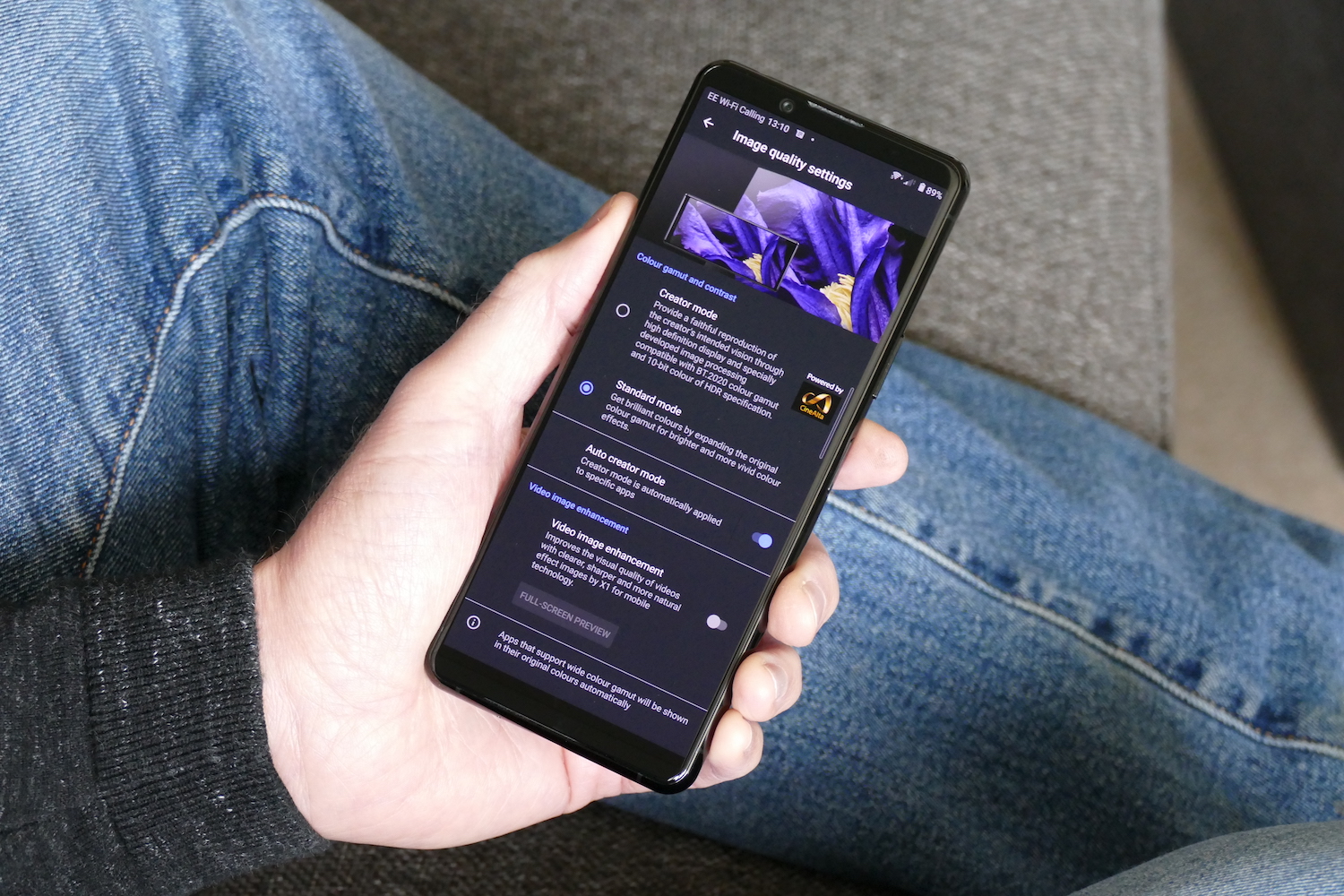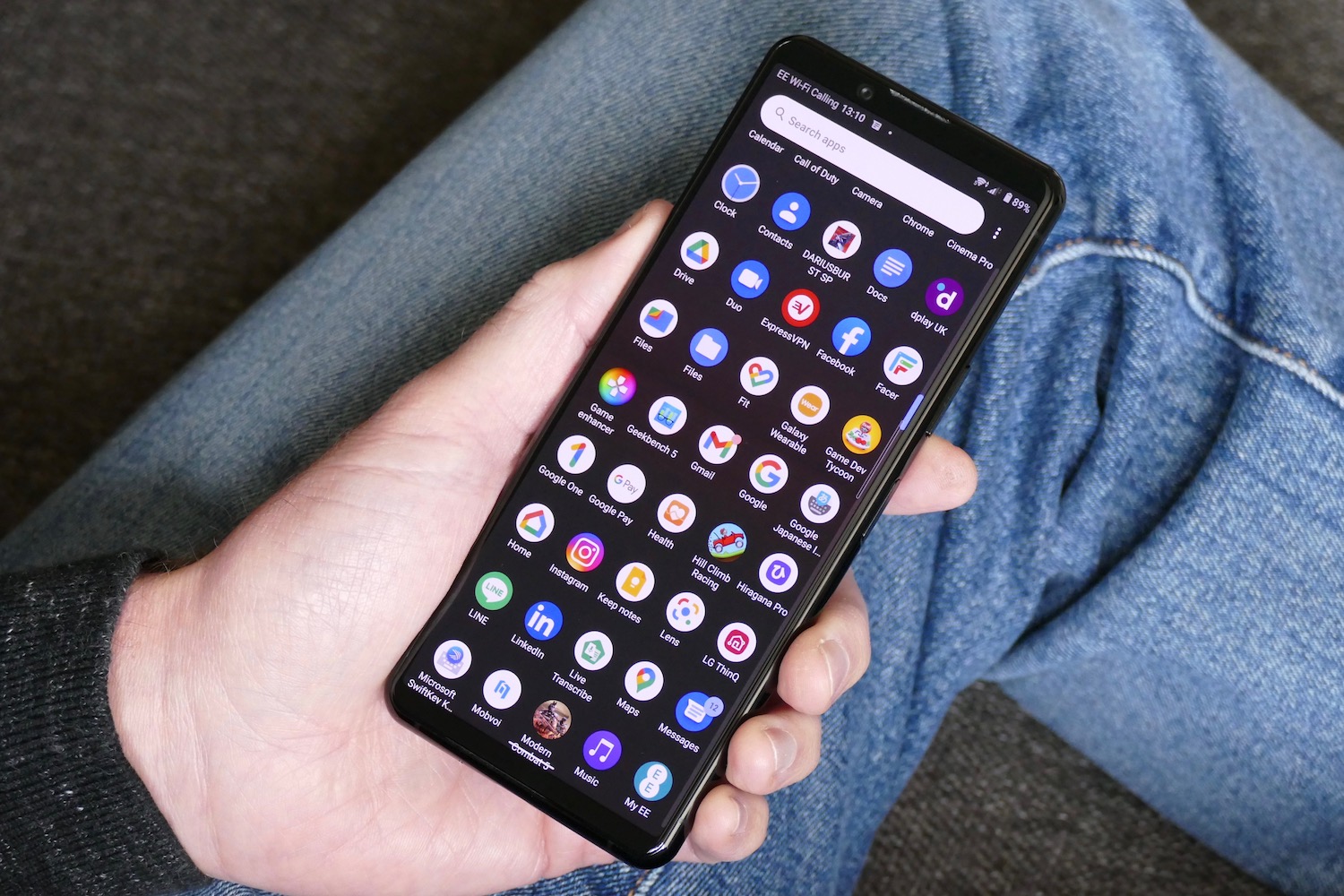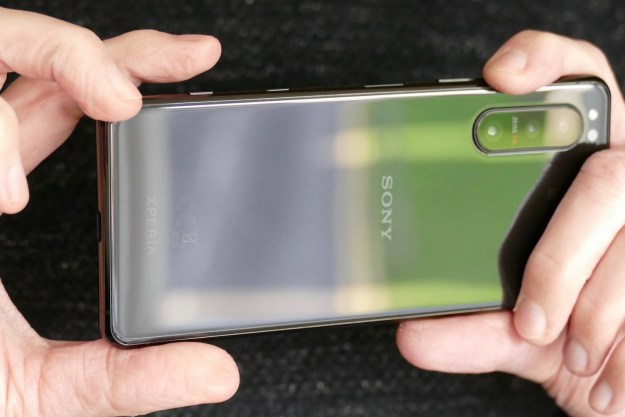
“The Sony Xperia 5 II is just the right size and has a desirable specification, but it's best features need work to exploit, and some frustrating omissions make it hard to recommend.”
- Compact, lightweight design
- Beautiful OLED screen
- Powerful processor
- Long battery life
- No wireless charging
- No 5G in the U.S.
- Camera quirks are frustrating
The Sony Xperia 5 II is the compact flagship smartphone many have been hankering for, but to get the best from this desirable high-spec/small-package combination, you will have to work hard and pay a substantial price. I’ve been living with the phone for a couple of weeks now, and this is what it’s really like.
Design
Glossy, glassy, and slippery like a well-oiled fish. That’s the best way to describe the Xperia 5 II, outside of its modest dimensions and low weight. It’s truly compact, due to the 8mm thickness and taller-not-wider shape enabled by the 21:9 aspect ratio screen. It weighs only 163 grams, and the slim build means even those with small hands will be able to reach the other side of the screen with their thumb. It easily slips into pockets and bags, and unfortunately, off of nearly every surface it touches as well.

The Xperia 5 II is made from glass with an aluminum frame, and it slides around with a mind of its own on anything that’s not a perfectly flat surface. You also have to hold on tightly because of this, as there’s not much grip from the body. This brings me to the one thing I really dislike about the phone’s design — a mass of buttons running down the right-hand side.
Top-to-bottom, there’s a small volume rocker, then the power button with the fingerprint sensor built in, then a Google Assistant button, and finally, a physical camera shutter button. Pick the Xperia 5 II up and it’s almost certain you’ll press a button, and it’s usually the useless Google Assistant one, which can’t be remapped or easily disabled. A frustrating design choice, made worse by not giving me the option to use the function or not.
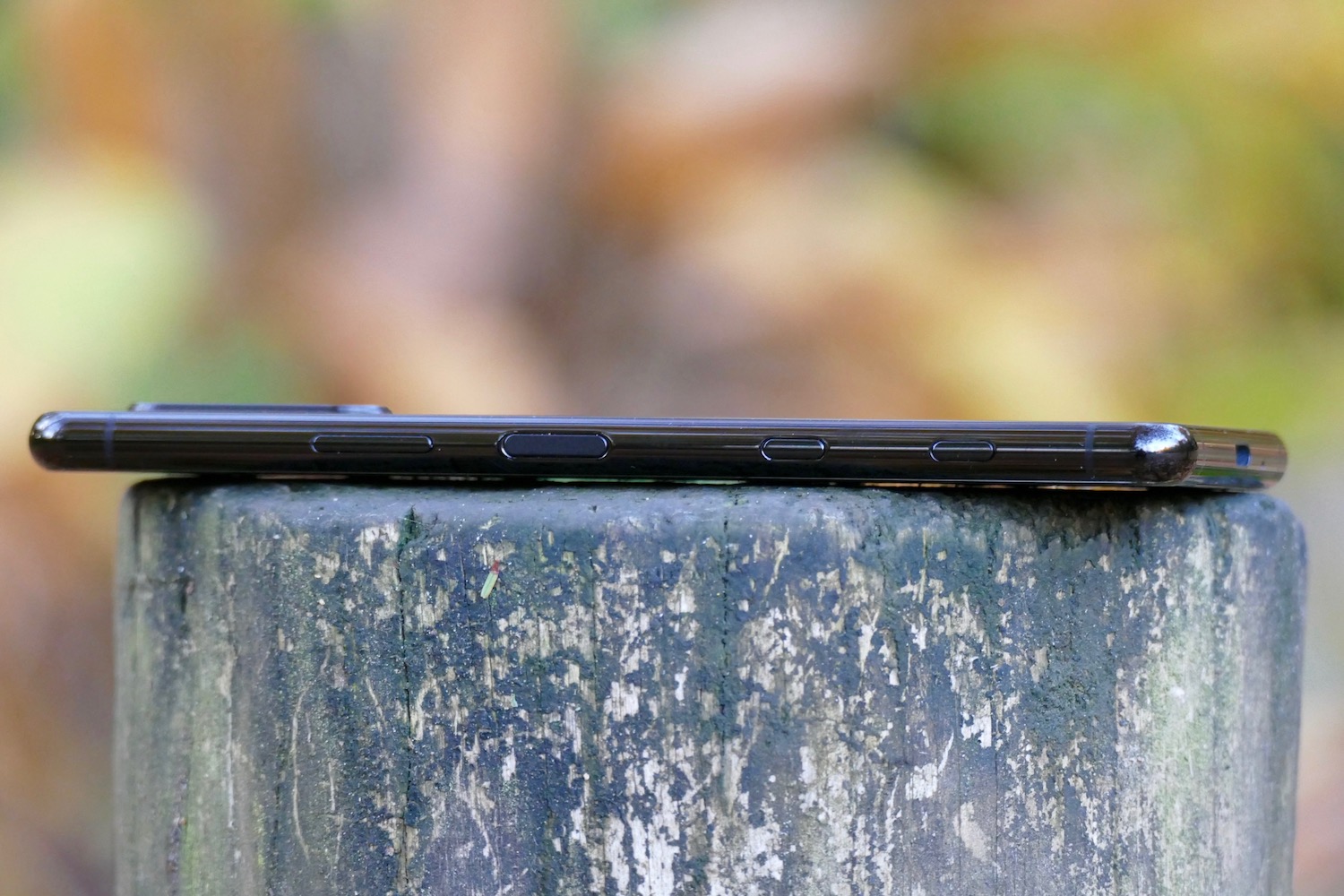
The fingerprint sensor is fast and reliable, but it is set a little too centrally on the side in my opinion, and I do like the physical camera shutter button, which is placed at the bottom of the frame so as not to intrude. It’s great to find a 3.5mm headphone jack on the top of the frame, despite the phone’s slimness. I like the pullout SIM card tray, which doesn’t require the use of a SIM removal tool, yet doesn’t affect the phone’s IP68 water-resistance rating.
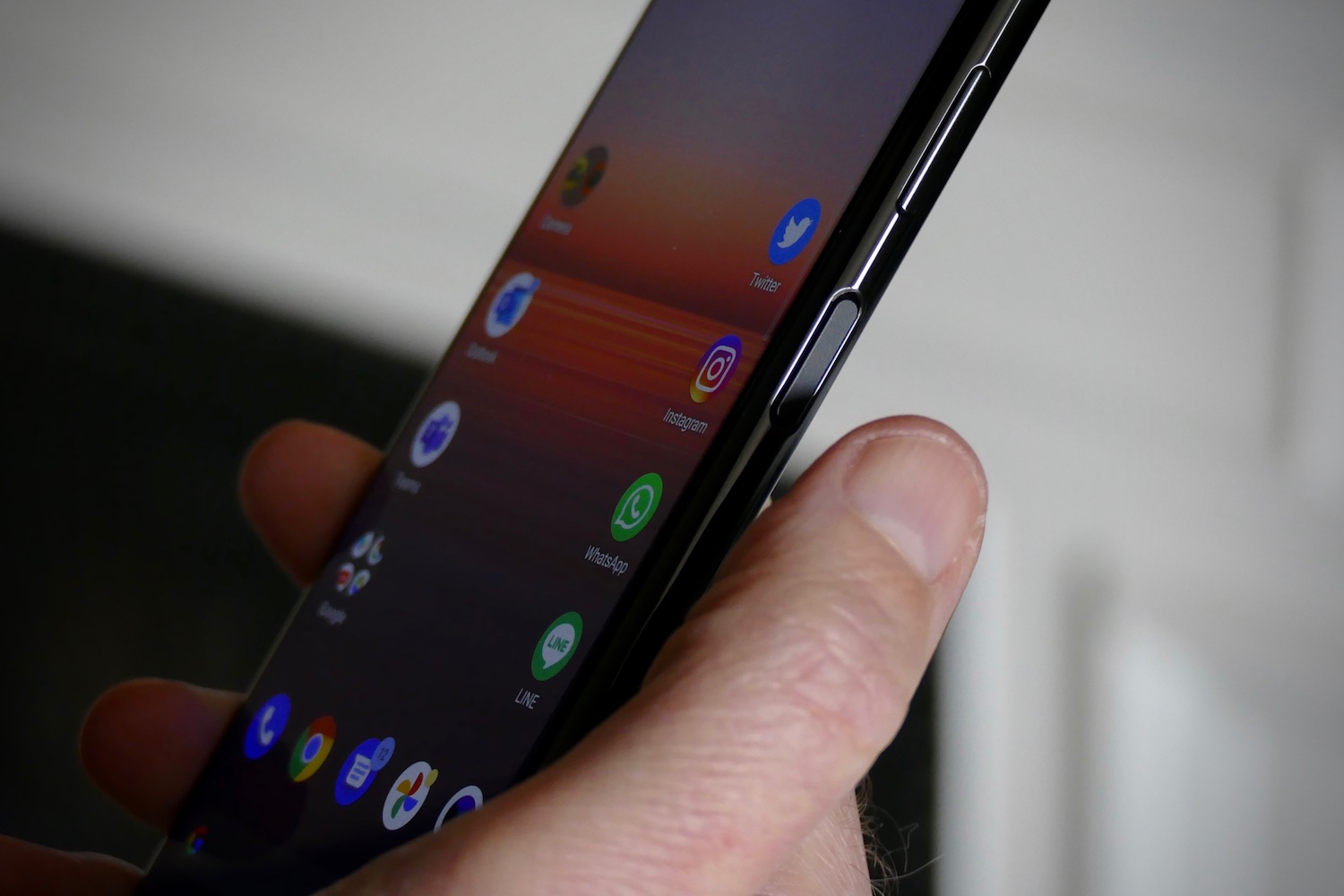
The Sony Xperia 5 II is easy to handle, compact enough for everyone, made from premium materials, and just about the perfect size for a smartphone. You’ll just have to deal with all the slipperiness.
Screen
The 21:9 aspect ratio is made for watching super-widescreen movies, and contributes to the phone’s diminutive size. In reality, although 21:9 films are out there, they’re a little less common than 16:9 videos. This means you’ll still watch most with black bars running down either side, although there are plenty of games that take advantage of the super-widescreen view, including Minecraft, Asphalt 9, and Fortnite.

It’s the spec we want in 2020, though. The OLED screen has a 2520 x 1080 resolution, a 120Hz refresh rate, and 10-bit HDR support. It’s not the 4K monster fitted to the Xperia 1 II, but under normal circumstances, you really won’t notice the lower pixel count, plus it has the same Creator Mode and image-enhancement technology from the more expensive phone. I love the way it looks, and doubt many will wish they’d splurged to get the Xperia 1 II instead.
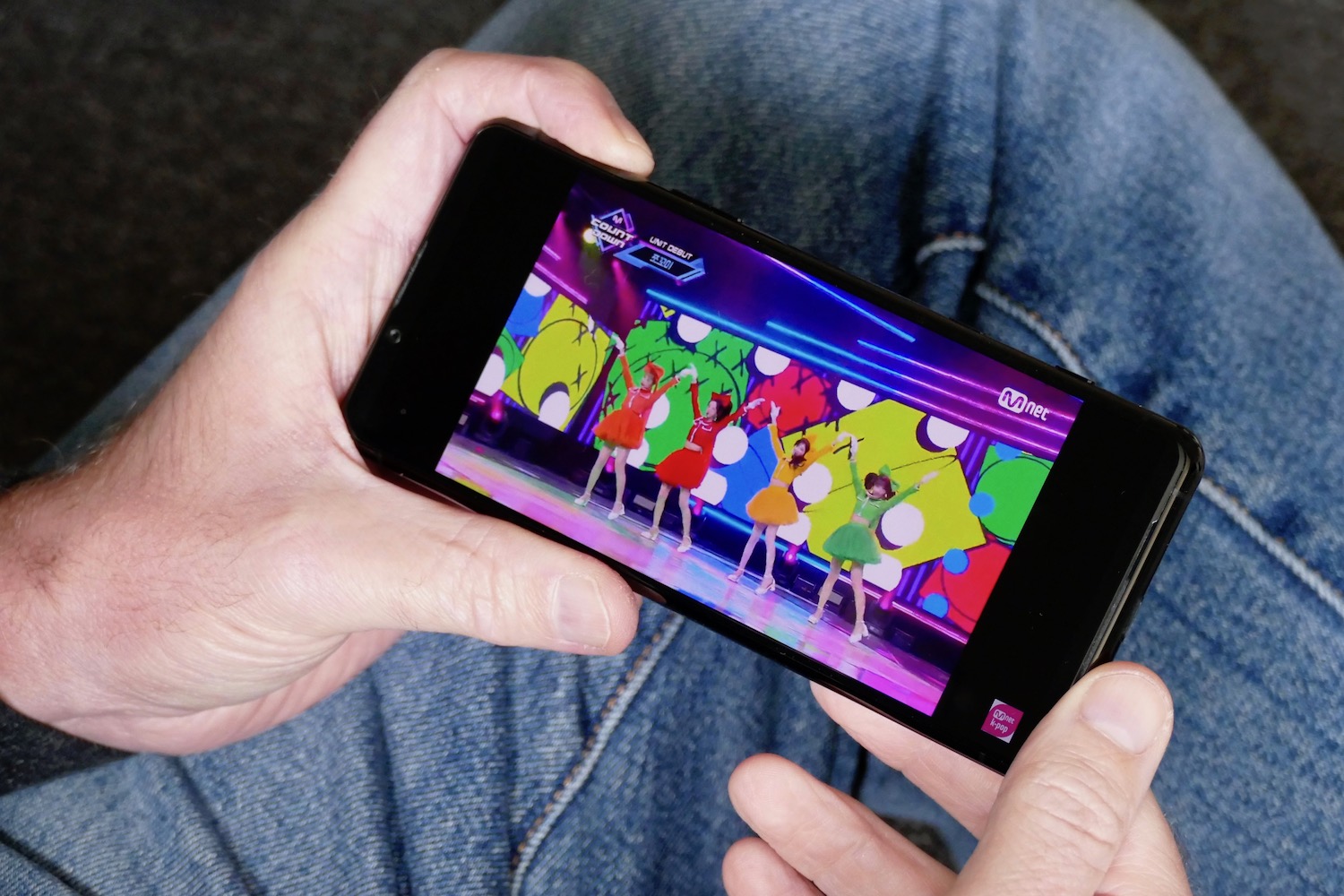
The display is lovely. Dreamy, in fact. Carfection’s Audi e-Tron Sportback review is sharp and colorful, while Mnet’s live version of WJSN Chocome’s Hmph! jumps off the screen with its electrified, ultra-vivid colors. Music videos are excellent on the Xperia 5 II due to its stereo speakers, which have masses of volume and a sweet controlled sound. And Sony’s Dynamic Vibration feature adds a vibration matched to what’s playing on the screen. It works well because you can adjust the intensity. Keep it low and it’s a pleasing additional effect.
And when you’re using the phone vertically, as you do most of the time, that extra screen real estate gives you more content in feeds and messaging apps without having to scroll.
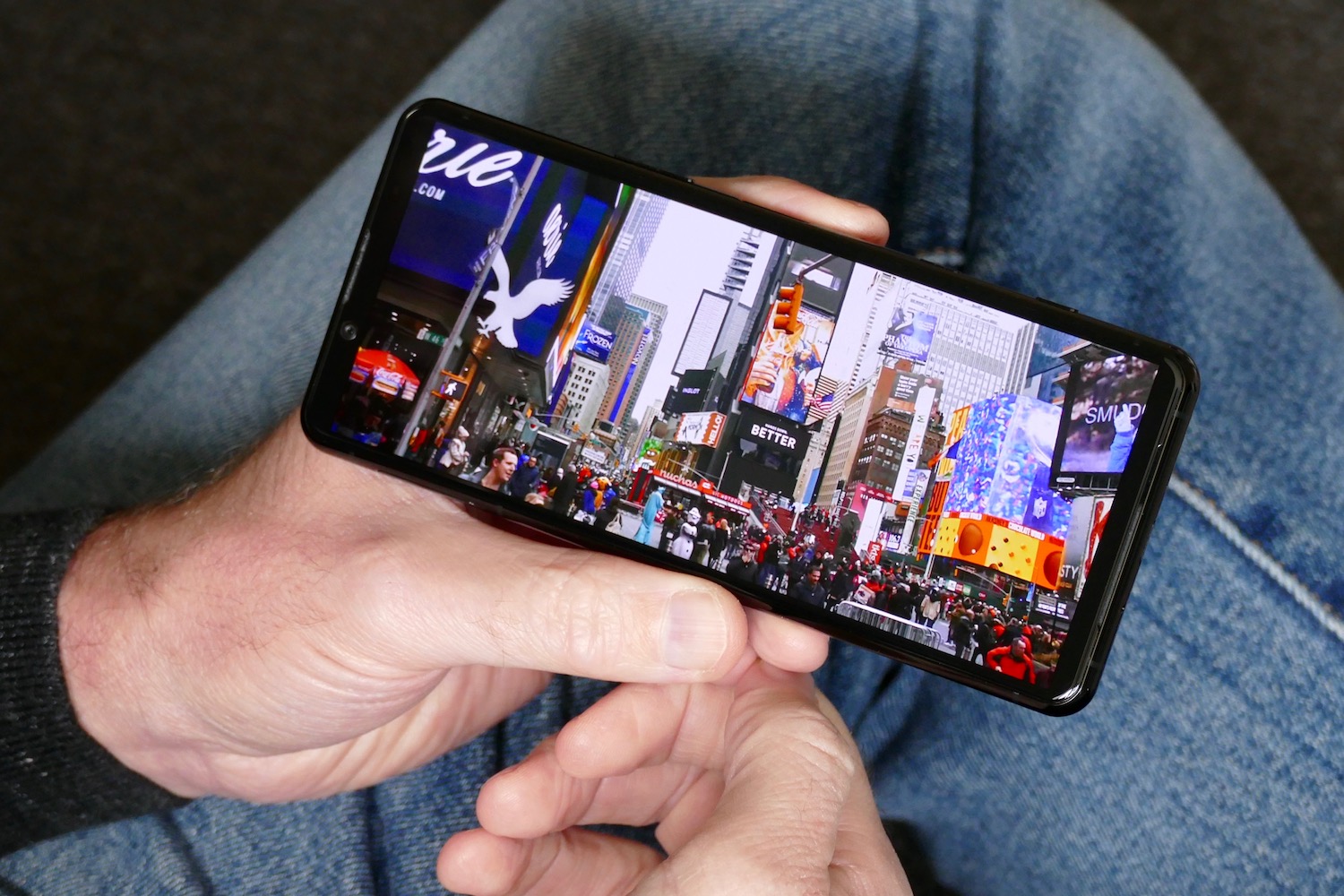
No, the Xperia 5 II doesn’t quite reach the heights of the Xperia 1 II in terms of sheer, astonishing visual appeal on a mobile device, but it’s arguably all anyone will need.
Camera
There are three 12-megapixel cameras on the back of the Xperia 5 II: An f/1.7 standard camera, an f/2.4 telephoto camera, and an f/2.2 ultrawide camera. Sony worked with Zeiss Optics on the lenses, and features include optical and electronic image stabilization, HDR, 4K video recording, eye-tracking, a 3x optical zoom, and Dual Pixel autofocus. It’s almost the same setup found on the back of the Xperia 1 II, but with a few alterations.

Because its so similar to the Xperia 1 II, it has the same problems. The photos it takes are often beautiful, with excellent balance and dynamic range, but it struggles with focus up-close, and results can be inconsistent. It doesn’t have a night mode for super-bright night images, so lowlight images aren’t as striking as those taken with some other phones, but there’s plenty of realism and detail. The 8MP selfie camera washes skin tone out to the point of death on the default settings, so it’s wise to turn off all the enhancements before getting started there.
Overall, I’d edit my images more often than not, a process that uses Google Photos editing suite, to get them looking just right. It’s worth it, because Sony’s camera captures plenty of delicious detail. I didn’t get a chance to play with the eye-tracking feature on the Xperia 5 II due to a lack of living creatures around me (thanks 2020), but I’ve used it in the past and been very impressed. Getting eye focus right is crucial to accurately capturing portrait shots, and it’s a feature few other phones have.
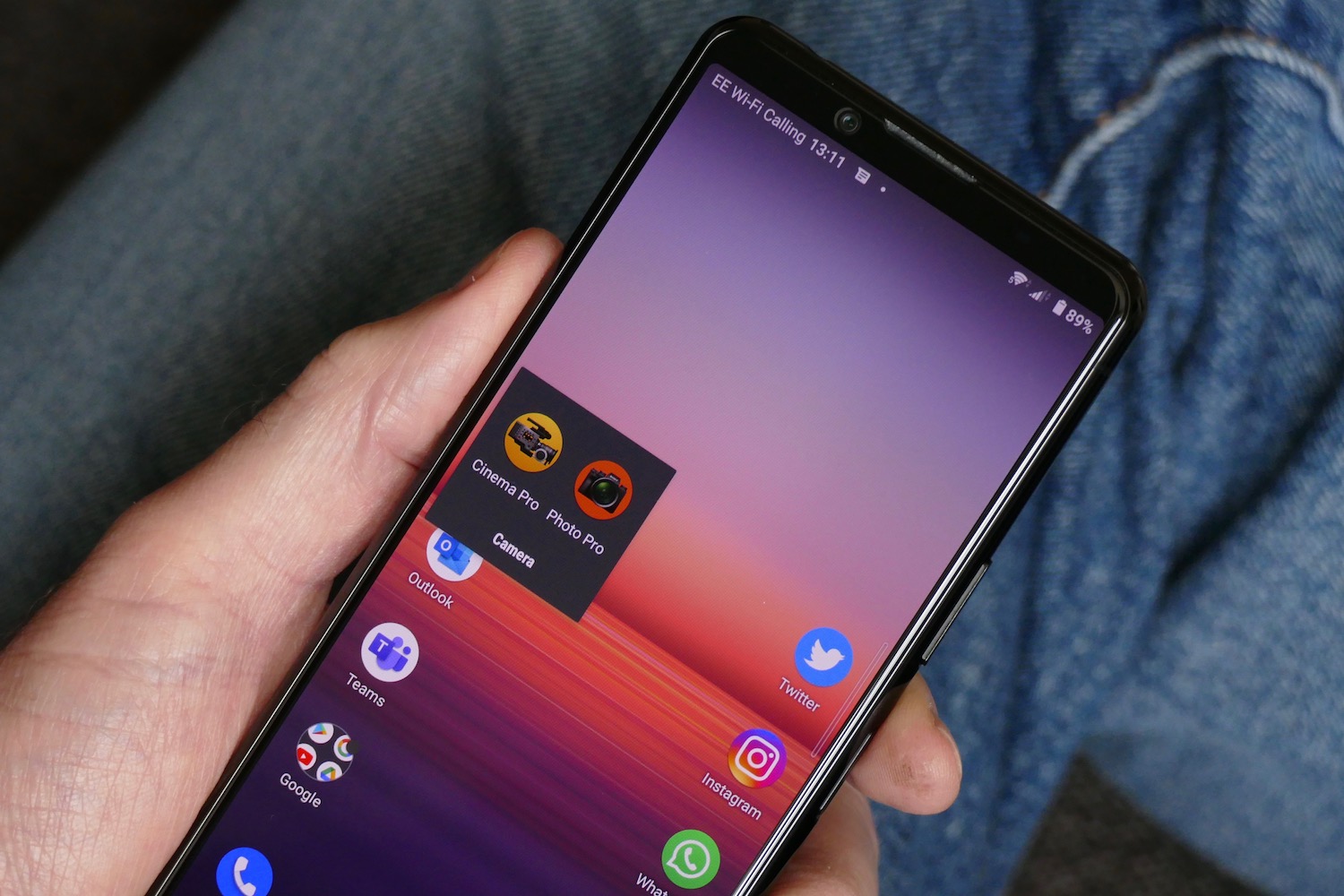
Sony sells the Xperia cameras on the merits of its Photo Pro and Cinema Pro apps, which have been tuned by Sony’s expert camera and cinema teams, and are essentially jazzed-up manual modes. If you regularly use manual mode on your smartphone’s camera, you’ll appreciate the depth and versatility each offers, and be able to create impressive stills and video with them. However, if you’ve never touched manual mode and are not familiar with the principles of shutter speed, white balance, ISO, and manual focusing, then the learning curve is very steep.
- 1. Sony’s Cinema Pro app
- 2. Sony’s Photo Pro app
It sounds like I’m down on the Xperia 5 II’s camera, but I’m not really. It just frustrates. It can take some wonderfully atmospheric photos with beautiful colors, I like the combination of an ultrawide and a telephoto, and the physical camera shutter button is a great tactile, ergonomic addition. But it’s inconsistent, is sometimes outperformed by other cameras on phones that cost less, and puts too much emphasis on features that will be beyond many potential owners.
Everything is there in Sony’s camera on the Xperia 5 II and the Xperia 1 II to take wonderful photos, but unlike the Pixel 5 or iPhone 12 Pro, it won’t happen just by pressing the shutter button. If that sounds like something you like, and are interested in learning more about the mechanics of photography, you’ll appreciate the Sony phone more.
Software and performance
Using the Xperia 5 II as my daily phone has not revealed any performance shortcomings. It is as fast as you’d expect from a phone with the Qualcomm Snapdragon 865 processor inside, along with 8GB of RAM and 128GB of storage space. Asphalt 9 Legends plays brilliantly and takes advantage of the 21:9 aspect ratio screen too, and the phone’s lightness makes it excellent for long gaming and movie sessions.
Sony’s user interface with Android 10 is unobtrusive, and the software is fast and reliable. There are various non-Sony apps preinstalled including LinkedIn, which disturb you with annoying notifications and are a pain to manually uninstall. The tall screen takes a little getting used to if you’ve been looking at a wider aspect ratio screen. Icons can seem tightly grouped together, and scrolling apps like Twitter and Instagram feels constricted at first, but the ergonomic benefits the shape brings soon take over.
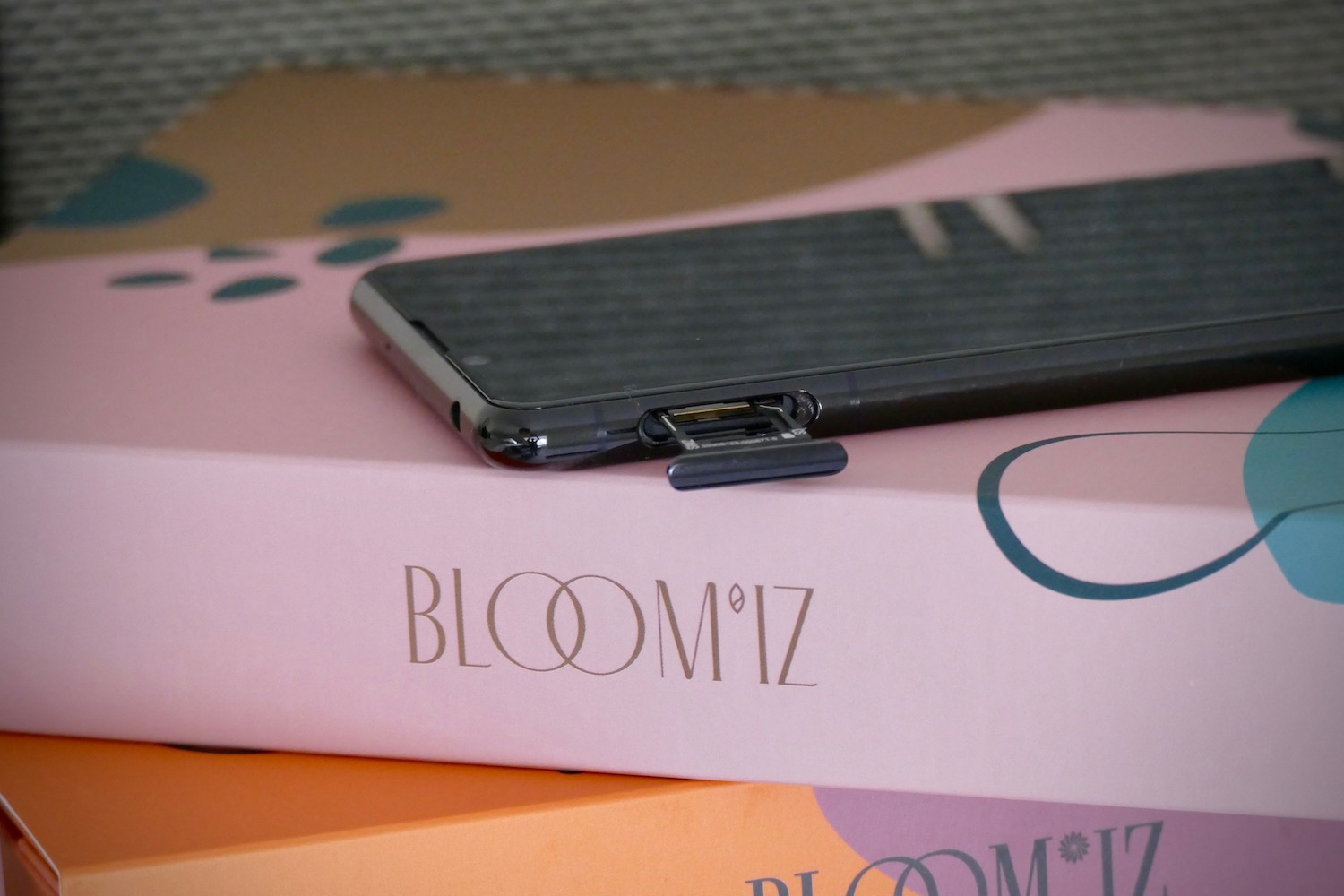
I have encountered some problems with Wi-Fi range and cellular connectivity. The Xperia 5 II dropped its signal more often than other phones I test, and lacks the Wi-Fi range of other models including the Pixel 5 and iPhone 12 Pro. Calls are good, but it’s easy to cover the microphone on the bottom of the phone with your finger, and the front camera retains the washed-out look seen in its selfies during video calls.
In the U.K. the phone supports 5G, but it does not in the U.S. While 5G isn’t a reason to buy any phone at the moment, it will matter down the road, and should be a consideration when purchasing an expensive device. It’s also unfortunate the phone still has Android 10 rather than Android 11, and there’s no confirmed date for the software update either.
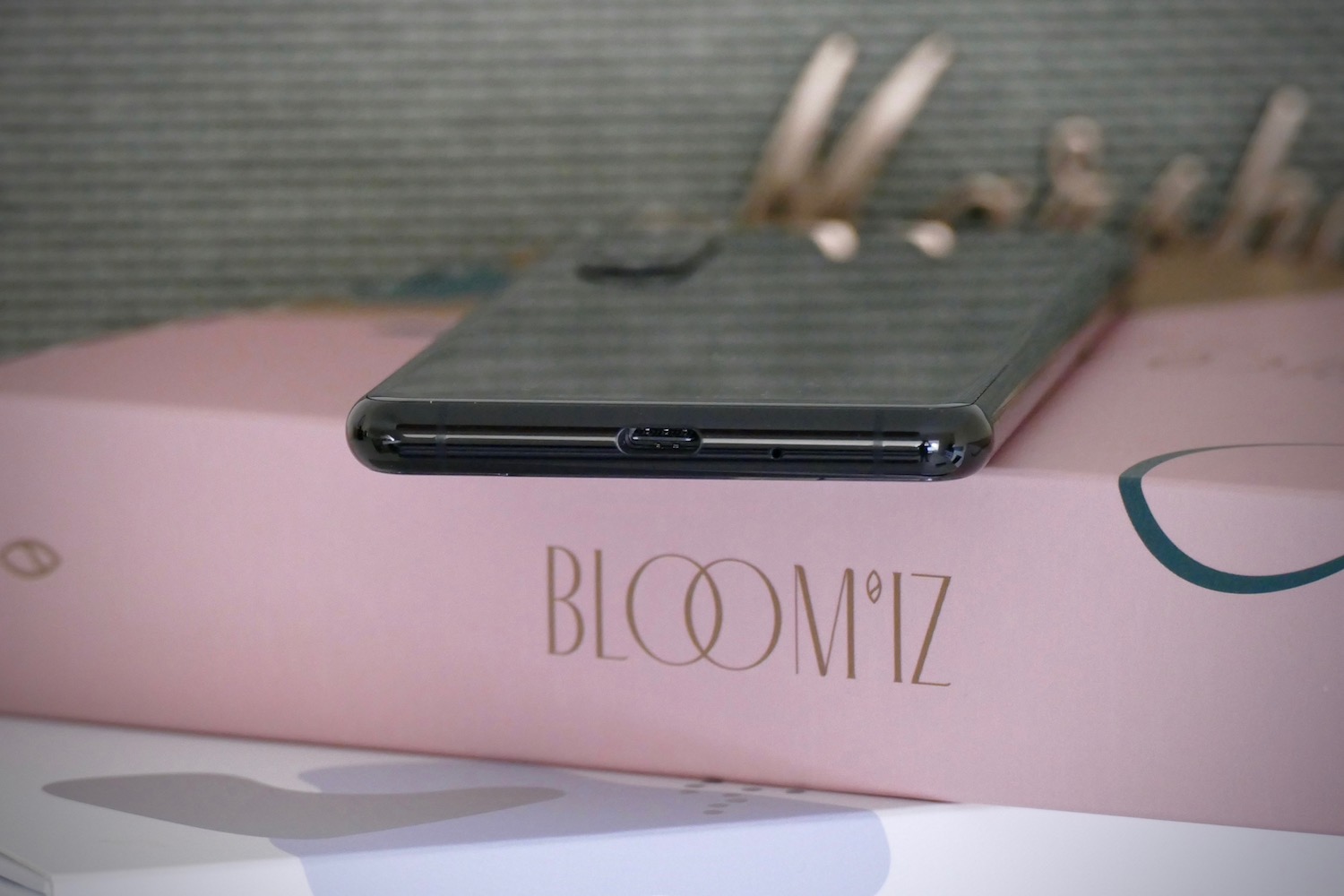
The 4,000mAh battery has proven very strong, easily lasting me a full day with average use of between two and four hours of screen time each day. It returned very similar battery performance to the Samsung Galaxy S20 FE I’d used previously, ending long days with around 30% remaining. Without video calls, the battery should last for two days without a problem.
Sadly, there’s no wireless charging, and although it supports 21-watt fast wired charging, you get an 18W charger in the box. If you happen to have the higher-wattage charger already, it’ll zip to 50% in 30 minutes. If not, then expect it to be at least 45 minutes. I like the adaptive charging mode though, which manages overnight charging cycles to extend the battery’s life span.
Price and availability
The Sony Xperia 5 II is available to pre-order in the U.S. ahead of a December 3 release for $949 (it has already been discounted to $900). It’s available now in the U.K. for 799 British pounds.
Our take
If Sony’s 21:9 aspect ratio screen and associated design appeals to you, and it really should, the Xperia 5 II is the model to buy compared to the Xperia 1 II. It does almost everything for $250 less. The screen, battery life, build, and compact dimensions all impress, although you do have to put in some effort to make the most of the camera’s talents.
I like the quirky Xperia 5 II, but recognize there are better buys for the same price or less. It’s definitely part of a dying breed: A truly high-spec compact flagship phone.
Are there better alternatives?
Yes. At $949, even with its high specification, the Xperia 5 II has plenty of competition. The $900 OnePlus 8 Pro is our pick of the Android alternatives, due to the great software and screen, while the $1,000 iPhone 12 Pro is a superb alternative, providing excellent software, camera, and design. The Galaxy S20 Plus is around the same price now, and if you’re happy with the plastic back, the Samsung Galaxy S20 FE is great value at $699.
All of those phones are larger than the Xperia 5 II, though. If you want a brilliant point-and-shoot camera in a compact smartphone, the $699 Google Pixel 5 is our pick.
How long will it last?
The tech is there for the Xperia 5 II to last at least the duration of a two-year contract or financing plan before it perhaps starts feeling its age. The lack of 5G may prompt you to update around this time anyway. The phone is made of glass, but does have an IP68 water-resistance rating, so should prove relatively durable inside a case.
Sony has been frustratingly obtuse about its Android software update schedule. It told Digital Trends it’s committed to providing regular and timely updates when we asked it about Android 11 on the Xperia 1 II, but didn’t give any specific dates. It’s similarly unclear for the Xperia 5 II. Expect an update then, but just be patient.
Should you buy it?
No, there are better phones with a more generally accessible camera available for the same price. And the lack of 5G in the U.S. hurts its longevity. It’s a better option in the U.K., though, due to the slightly better price and 5G support.



